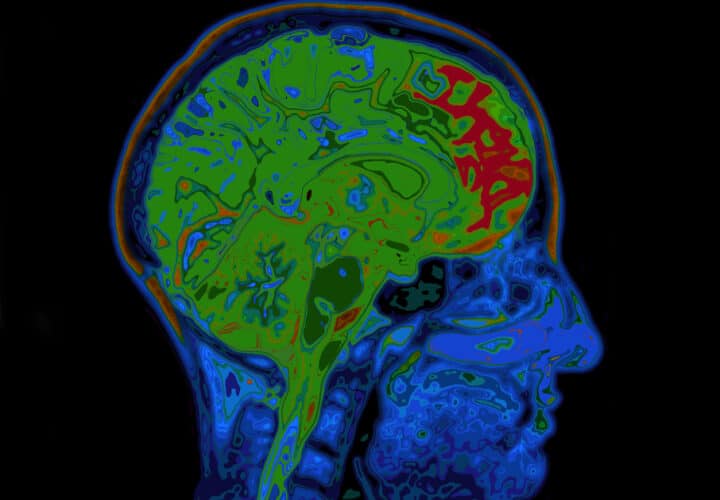2019 research shows many adults have misconceptions about dementia.
One in ten people over the age of 65 will be diagnosed with dementia. For people over 85, dementia is already a reality for 32 percent of the population. With numbers like that, you’d think that the general population would be on the lookout for ways to minimize their risk, right?
You would be wrong, according to 2019 research that shows many adults have misconceptions about dementia.
A survey by Alzheimer’s Research UK found that only one percent were able to name the seven risk factors for dementia — many of which can be modified by lifestyle.
One in five said dementia was an inevitable part of getting older, which has been disproven by researchers. Another 17 percent said they weren’t sure if dementia was a part of getting older.
Scientists know that dementia is not part of the normal aging process, and the belief that it is caused by age discourages people who are having trouble with their memory from getting a screening for dementia—all of which can lead to a delay in diagnosis. The sooner a person is diagnosed, the better their quality of life and treatment plan can be, according to experts. It also gives them more time to enroll in clinical trials that may offer a drug with the potential to modify the course of the disease.
“This shortfall in understanding means that people may be less likely to take steps to maintain their own brain health, to seek a diagnosis or to support research that has the power to bring about breakthroughs and transform lives,” wrote Hilary Evans, the chief executive of Alzheimer’s Research UK, in the report.
Even though 52 percent of respondents said they knew someone personally with dementia, just 52 percent of the 2,361 surveyed could name a risk factor that might reduce or increase their chances of developing dementia. Only 34 percent said dementia risk could be reduced by lifestyle modifications.
Some of the risk factors for dementia are heavy drinking, genetics, smoking, high blood pressure, depression and diabetes. One of the protective risk factors is physical exercise.
Without a cure, research has turned to the preventative route for Alzheimer’s, much like for diabetes or cancer, Rudy Tanzi, Ph.D. and a professor of neurology at Harvard University, told Being Patient.
“We now live our lives in a way that helps us avoid carcinogens. We keep track of what causes cancer. We keep track of our cholesterol to keep our hearts healthy. But we don’t diagnose Alzheimer’s disease until you have symptoms and enough damage in the brain that you’re already suffering from the early stages of dementia,” said Tanzi.
It’s alarming that a large percentage of people don’t know the risk factors for Alzheimer’s because that means they may not be taking the right steps to prevent it.
“If you wait until someone has a heart attack and say, ‘OK, now you should start taking medication to lower your cholesterol,’ that wouldn’t work either. But that’s what we’ve been doing with Alzheimer’s,” said Tanzi. “We have to change that.”
There is good evidence that maintaining a healthy lifestyle can reduce your risk of dementia. Tanzi uses an acronym he dubbed the SHIELD system—sleep, handle stress, interact with others, exercise, learn new things and diet—to help people remember the lifestyle changes they can make to minimize their dementia risk.
Research has found that seven heart-healthy practices can reduce dementia risk by up to 70 percent. Those habits include not smoking, having a BMI under 25, getting regular exercise, eating fish twice a week and fruits and vegetables at least three times a day, having blood pressure under 120/80 mm Hg and keeping total cholesterol under 200 mg/dL and blood sugar under 100 mg/dL.




I’m reeling after another member of my husband’s family has been diagnosed with Alzheimer’s. my husband was diagnosed in fall of 2015. He has been in a nursing home since April of last year (very rapid progression) it’s sad that this family needs to deal with this yet again.
Thank you for this article, I’ve found it interesting & will be passing it along.
Dr Tanzi thank you so much for being you and for knowing what you know. I follow you CLOSELY.
My grandmother…. dad’s mom , had something . She ended up in Verdun , in Montreal. in her 80’s.
I am on quite the cocktail for bipolar disorder, anxiety disorder, and OCD.
I admire and trust my psychpharmacologist, I have been seeing for 20 years.
I can feel my mind slipping. The other day I forgot my sweet son’s middle name. I forget a lot of things but, usually remember them shortly after.
I have great long term.
Worried of course but, I eat nothing good for me so!!
I am going to buy a book of yours. Can you suggest a title I should start with.
Sincerely,
Joan Hewitt
Toronto Ontario